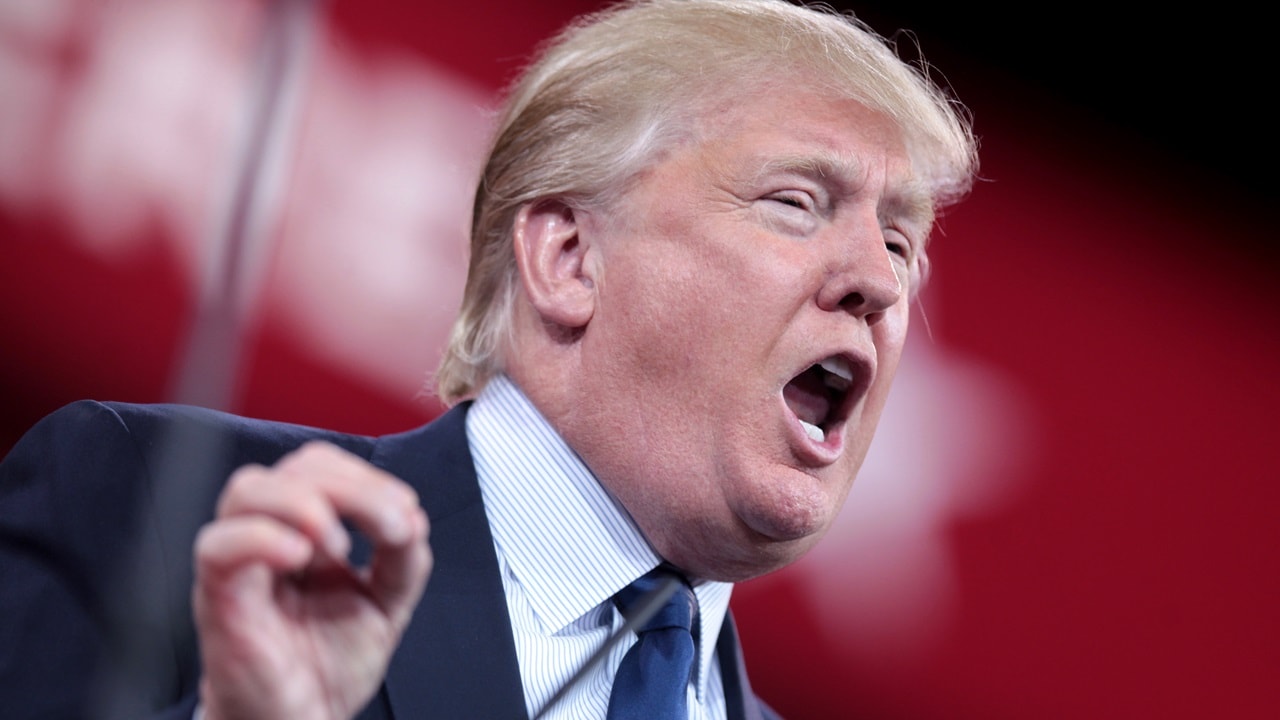President Donald Trump, for much of his time in politics, has tested the limits of what a president, or for that matter a candidate, is allowed to do. In 2019, during his first term, Trump declared a national emergency on the border to get around Congress and force the construction of his proposed border wall.
And in 2020, of course, Trump refused to acknowledge that he had lost the presidential election.
Is America in a Constitutional Crisis? Experts Say Donald Trump’s Moves Are Testing the Limits
Those two incidents resolved themselves without what most scholars would call a constitutional crisis. Trump left the White House, Joe Biden replaced him, and Biden even dropped that emergency declaration in early 2021. There were also worries about a constitutional crisis during the campaign throughout 2024 when Donald Trump ran for president while facing criminal charges. That also resolved itself.
Now, early on in Trump’s second presidency, the phrase “constitutional crisis” is once again all over the media, from op-eds to quotes from law professors to even some Democratic elected officials.
Most of them center on the actions of DOGE, Elon Musk’s Department of Government Efficiency, its plans to dismantle various government agencies, and the possibility that the Trump Administration could defy court orders.
Some say we’re in a crisis already, and others say we “risk” one or are “close to.” In contrast, still others find the concept ridiculous or flip the script—as the White House press secretary did Wednesday—and say it’s judges that are causing a potential crisis themselves.
What is a Constitutional Crisis?
There isn’t an official fixed definition of what a constitutional crisis is. In an article last year, Dan Urman, director of the law and public policy minor at Northeastern University, called it “one of those essentially contested concepts without a fixed definition.”
It’s been described as a crisis scenario in which the U.S. Constitution provides no easy answer. Examples in history have included President Andrew Jackson defying a Supreme Court ruling in the early 19th century, as well as Richard Nixon’s initial refusal to hand over Watergate tapes. January 6 was another near miss, especially if the rioters had succeeded in stopping the lawful counting of electoral votes.
The Question of Today: Here Comes Donald Trump and DOGE
Since Donald Trump returned to office, and DOGE has been seeking to get rid of whole government agencies, the argument has been that DOGE lacks the statutory authority to do that and that DOGE’s actions are therefore illegal. There have already been multiple lawsuits to that effect, and it appears likely that the question will be in the courts for the foreseeable future and possibly decided by the Supreme Court.
The big question is, what will happen if the courts rule against Trump?
“If a judge tried to command the attorney general in how to use her discretion as a prosecutor, that’s also illegal,” Vice President J.D. Vance said on X on February 9. “Judges aren’t allowed to control the executive’s legitimate power.”
Some interpret this as Vance stating that the Trump Administration plans to ignore the courts. Vance has said just that in past interviews, even once stating that “when the courts stop you, stand before the country like Andrew Jackson did and say: ‘The chief justice has made his ruling. Now let him enforce it.'”
What would happen then? No one knows. And that’s why many experts are calling that very scenario a constitutional crisis. Others have said the crisis is here already.
Is the Crisis Here Now?
One prominent law professor, University of California, Berkeley Dean Erwin Chemerinsky, told the New York Times recently that “we are in the midst of a constitutional crisis right now,” citing multiple actions in the opening weeks of the second Trump presidency. Chemerinsky cited not only the DOGE actions but also the executive order revoking birthright citizenship and the federal spending freeze.
Stanford law professor Pamela Karlan also sees the crisis as here already.
“Up until now, while presidents might engage in particular acts that were unconstitutional, I never had the sense that there was a president for whom the Constitution was essentially meaningless.”

Donald Trump speaking at the 2015 Conservative Political Action Conference (CPAC) in National Harbor, Maryland.
About the Author: Stephen Silver
Stephen Silver is an award-winning journalist, essayist and film critic, and contributor to the Philadelphia Inquirer, the Jewish Telegraphic Agency, Broad Street Review and Splice Today. The co-founder of the Philadelphia Film Critics Circle, Stephen lives in suburban Philadelphia with his wife and two sons. For over a decade, Stephen has authored thousands of articles that focus on politics, technology, and the economy. Follow him on X (formerly Twitter) at @StephenSilver, and subscribe to his Substack newsletter.

